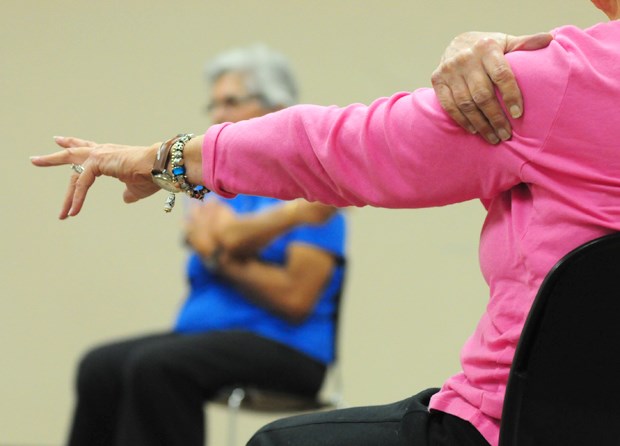It’s B.C. Seniors Week across the province.
From now until June 8, we have a chance to acknowledge and celebrate the integral part seniors play in communities across British Columbia.
Of course, it’s my feeling that perhaps we should celebrate seniors every day, all year. We also need to recognize and deal with many of the issues seniors face in our communities.
Some people incorrectly believe that seniors are a drain on society, or that the myth of the well-heeled golf-swinging senior is the norm. But when we look at seniors as a group we see people from all walks of life, income levels, ethnicities, with wide ranging interests and abilities.
Rather than being a drain on society, seniors are continuing to work through employment, volunteering, helping with family and friends and through caregiving. Seniors continue to contribute to our society economically through the taxes they pay, as consumers, and as part-time workers in jobs many don’t want to do (greeter at your local grocer) in order to stretch their income.
As seniors advocate Isobel Mackenzie said about seniors last year: “We know they are a vital resource to the well-being of our province.”
Historically, seniors contributed to the economic growth of their communities through their paid work, taxes and their contributions to culture and Canadian values. They fought for our country, educated our young, built our communities physically, and so on.
Due to less work commitments and more free time, seniors volunteer many hours in their community today. They make up some of the 12 million people who volunteer in Canada. A report from Volunteer Canada states that: “Older adults have a lower volunteer rate than younger age-groups but they contribute, on average, more hours per year.”
Seniors volunteer at organizations in a variety of ways, they volunteer for sports groups, they volunteer at community events, they assist their families with daycare for children, taking care of pets and sometimes taking in their older children when things get tough for the kids.
Caregiving is a major way seniors contribute to their community and families. Nationally, more than a million caregivers in Canada are older than 65 and the number of seniors requiring care is set to double over the next 15 years.
While we celebrate seniors’ contributions we need to be aware that not everything is rosy for seniors and that we as a community have a responsibility to assist seniors as they face issues such as elder abuse, which in some cases reduces their income because of family perpetrated fraud against a senior. They also face increasing health and wellness issues, loneliness, isolation, poverty and more.
Seniors are not a homogeneous group and many are certainly not wealthy. In fact, according to Statistics Canada, 12.5 per cent of Canadian seniors now live in poverty and, between 2014 and 2015, 75,000 more seniors became low income. Many seniors do not have a private pension or retirement savings to carry them through their senior years.
Elder abuse is a growing issue. In order to bring attention to elder abuse each year, the United Nations has earmarked an International Day, June 15, to acknowledge the significance of elder abuse as a public health and human rights issue.
Social isolation is a growing issue for seniors as well. According to the B.C. government’s website on senior social connections, “People without strong social networks may become isolated. Social isolation can lead to reduced mental and physical health, as well as depression.” Seniors who are socially isolated may also develop addictive behaviours, become sedentary and eat poorly. Their volunteer and participation in community may also decrease. Seniors need to find social connectedness through participating in community. The B.C. website states that: “Older people who are socially connected and participate in their communities are more likely to eat well, engage in physical activity, and feel good about themselves.”
Along with social isolation, seniors may experience health and wellness issues. As seniors age they may become less mobile, develop cognitive issues and age-related health concerns.
Recognizing these issues for seniors and helping them deal with them will enhance our communities. Seniors contribute to our community in so many ways. We rely on their support and participation. Let’s celebrate them this week and every day of the year.
Margaret Coates is the co-ordinator of Lionsview Seniors’ Planning Society. Ideas for future columns are welcome. Email: [email protected]



